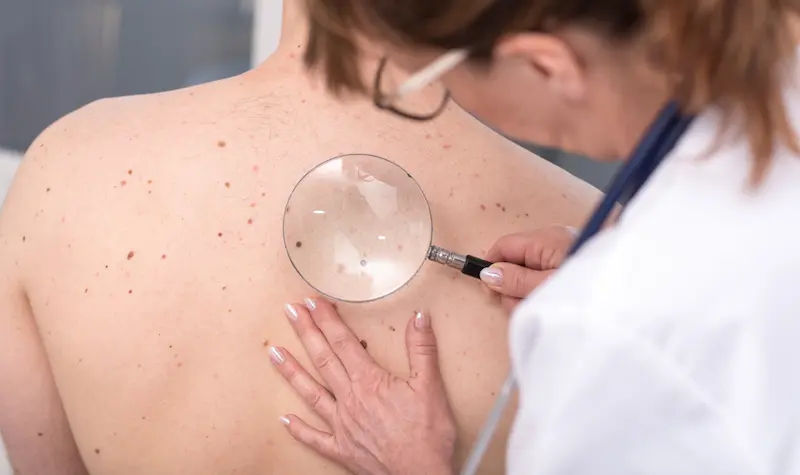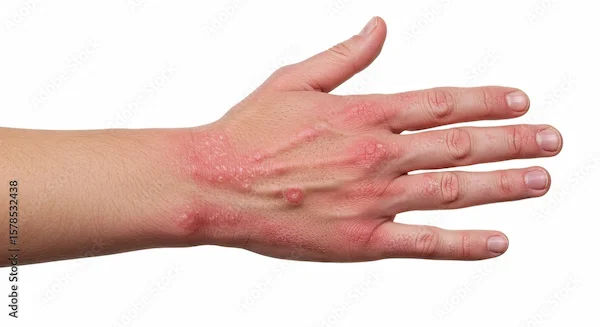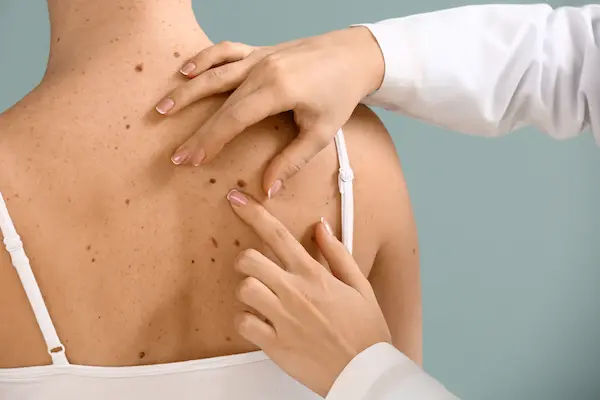- female
- 40 Years
- 07/02/2025
I'm worried about some red blood spots on my left arm that have been there for years and seem like blood clots. They don't itch, hurt, or swell, but if I rub them, they disappear for a bit but then come back. It seems like there are more of them now. I read online that it could be Contact dermatitis, but I have only a few visible blood clots. I saw a skin doctor who did a blood test, but it didnt show anything. She suggested a biopsy, which Im not ready for. Could you tell me what this might be and how to treat it?
Answered by 1 Apollo Doctors
That needs Physical Examination,visit Dermatologist for the same and appropriate management
Dr. Ranjith Suggests...
Consult a Dermatologist
Answered 04/07/2025
0
0

More Dermatology Health Queries
View allI'm dealing with some itching issues on both my scalp and the tip of my penis. Could you recommend a good doctor who can help with this? It's been bothering me, and I'd really appreciate any advice you can offer.
dermatologist opinion.
Answered by 1 Apollo Doctors
I'm dealing with a lot of hair fall here in Bangalore and I'm wondering if it's because of the hard water. Should I try using alum or fitkari in the water before I wash my hair? Also, I came across something called Mintop Pro and I'm curious if it's helpful. Are there any side effects I should know about? Would it be a good idea to start using Mintop Pro?
don't use for long time
Answered by 1 Apollo Doctors
I'm worried about my husband's skin rash that started after taking imol a few months back. Now hes been on injections and enzocart tablets because of it. He also keeps getting these headaches. I'm not sure what medicine is safe for him to take now, but I've heard about Dolo 650 already. Is something like dart okay for his headaches?
Dolo 650 contains paracetamol and so does dart. If he gets frequent headaches then instead of taking self medication and landing in trouble ask him to get it checked out by a neurophysician in person for further evaluation and management. .he will be able to help you further.
Answered by 1 Apollo Doctors
Disclaimer: Answers on Apollo 247 are not intended to replace your doctor advice. Always seek help of a professional doctor in case of an medical emergency or ailment.





